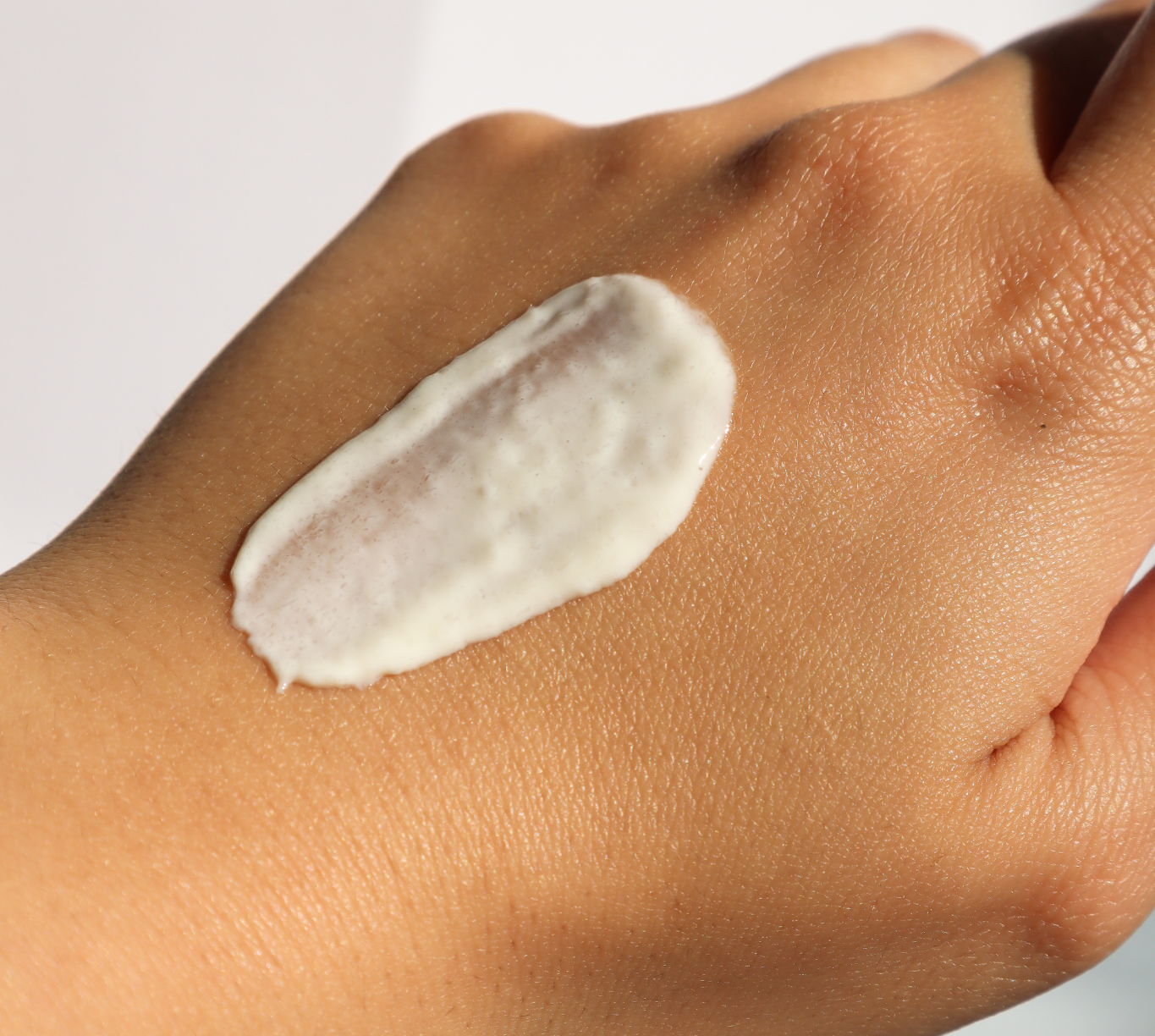Can Sunscreen Be Your Acne-Prone Skin's Best Friend?

We may not have a degree in sunscreen (Um, does that exist? It should…) but we sure do know a thing or two about our good old friend sun protection. If you’re part of the mild acne or bacne-prone skin club, you’ve probably tried many lotions and potions to shield your (gorgeous) skin from harmful UV rays from the sun.
As your (very wise, very hydrated) voice on all things body care, we’re here to remind you to never banish your SPF just because breakouts or acne have made a surprise appearance. Here’s why.
Acne and bacne 101
Acne is a common skin condition that often pops up in our teenage years, but many adults manage acne-prone skin, too. Acne appears when hair follicles under the skin become clogged. Sebum (oil that helps keep skin from drying out) and dead skin cells plug the pores, leading to pimple outbreaks. There’s also this thing called back acne or ‘bacne’, which happens when sweat, oil, dead skin cells and bacteria get trapped in your skin’s pores. (Often, backpacks, sweaty shirts or sports equipment are the culprits here. They can create friction and worsen back acne.)
Causes of acne
Environmental and physiological factors can trigger or worsen acne. These include:
- Pollution: Factors like dust, dirt, and debris can collect on your face and block pores.
- UV rays: The drying effect of the sun prompts your skin to produce more oil.
- Stress: Scientific research has shown a link between high stress levels and increased acne severity. While we don’t know exactly why this happens, it is believed that stress-related hormones, such as cortisol, may stimulate the oil glands in the skin, leading to increased oil production and a higher likelihood of breakouts.
Hormones: Some people may experience hormonal acne, which develops when hormonal changes increase the amount of oil your skin produces.
Does sunscreen cause acne or clog pores?
The answer is generally no. (Now, let’s bust some moves. We mean, myths.) There’s a common misconception that sunscreen can clog pores and exacerbate acne or bacne, but – plot twist – it does the total opposite. Sunscreen protects the skin against sunburn, and sunburn (and tans) can dry out acne and open the floodgates for extra oil production, resulting in breakouts. Sunscreen is actually trying to do you a solid, so it kinda deserves our eternal praise.
While sunscreen doesn’t directly cause acne, the formula type (we’re talking lotion, spray, etc) and ingredients may affect how your skin responds to it. See, if a sunscreen contains ingredients that irritate the skin and clog pores, that may cause or worsen acne.
Choosing the right sunscreen & application tips
Dealing with acne-prone skin? Here are some tips:
- If you have oily or sensitive skin, consider applying a non-comedogenic sunscreen. This means your gorgeous pores won’t get clogged (no more breakouts!) and your skin will be protected. No more excuses for not wearing sunscreen, people! It’s your everyday companion, so like that extra dollop of whipped cream that you absolutely need – be sure to lay it on thick.
- Prioritise a cleansing routine before sunscreen application. Remember that sunscreen is the very last step of your skincare routine.
- If you want to avoid breakouts, the best way to apply sunscreen is to apply it after your moisturiser and before your makeup … and give each product time to dry before applying the next.
💡 For long days at the beach, knowing how to re-apply sunscreen over makeup is a must!
Whether you have mild acne or bacne-prone skin or not, sunscreen is an absolute must every day of the year – as vital as your fave lip balm (... or lip SPF!), or, let’s be real, your house keys! This is especially true if you’re living in a sunny climate like Australia, where the UV rays from the sun are pretty freakin’ high … and that’s a scientific fact.
So, whatcha waitin’ for? Grab your fave SPF and lather it up!
Happy Sundae x
Explore Sundae Suncare bundles 👇
Written By: Lizzie Waley (Sundae Co-Founder & Body Care Enthusiast) | LinkedIn
Fact Checked: Charnnie Frimpong (Sundae Content Marketing Manager) | Linkedin

